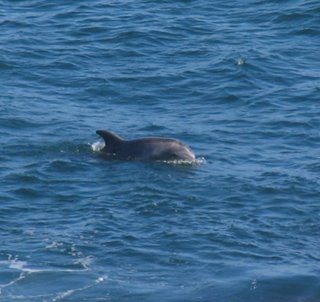At the end of the day, President Bush’s veto of stem-cell research doesn’t really matter.
July 19, 2006 - During the height of the Vietnam War, a bumper sticker asked, WHAT IF THEY GAVE A WAR AND NO ONE CAME? Here’s a 2006 alteration of that: WHAT IF THE PRESIDENT VETOED A BILL AND NO ONE CARED?
On Wednesday, President Bush handed down his first veto ever, for a bill that would have allowed federal funding for stem-cell research on embryos left over after in vitro fertilization procedures—embryos that would otherwise be destroyed. The bill passed both the Republican-controlled House and the Senate, although it fell several votes short of the number needed to override a presidential veto.
The veto comes as no surprise; that battle line was drawn years ago. But it’s hard to believe that the 70 percent of Americans who support stem-cell research really care what President Bush does. I’m not suggesting they won’t notice, or be bothered—even annoyed. I’m certainly not suggesting that federal funding couldn’t move research along at a faster pace. But caring is an emotion of a deeper kind. When we truly care about another’s opinion, it’s because we value that person and hold in some esteem their judgments and pronouncements. It also might mean we believe that individual can influence the tide of the future with their opinions.
This is a president who has no currency left with the majority of Americans who, polls have shown, do not trust him. We won’t totally shrug off his intransigence, but we won’t waste too much time mulling over his reasons either. Why? Because we don’t care.
White House Press Secretary Tony Snow said, about the impending veto, that President Bush “thinks murder is wrong.” But apparently, the destruction of fertilized eggs—flushed away as if they’re useless—doesn’t count as murder. Only using those fertilized eggs for valuable scientific research that could eventually save people’s lives counts as murder in this president’s mind. No one in this administration, with all their wordplay and posturing, has been able to dance around that stunning lack of logic.
We are being asked to believe that this president’s opposition to embryonic stem-cell research has deep moral, religious and ethical roots. As we heard, the word “murder” is tossed around freely.
Yet this is a president who led us into a war with a patchwork quilt of lies. Thousands of American soldiers have died. Thousands more have returned horribly wounded, and we don’t even know yet what toll posttraumatic stress disorder will take on those who obeyed their commander in chief and went to fight in Iraq. We may never know the complete death toll of Iraqi citizens, but we certainly know that some were raped and brutally executed. There have been many beheadings, sometimes of Americans who simply went to Iraq to help the people there, not to fight. Let us please not forget 26-year-old Nick Berg who was beheaded in May 2004. Where is President Bush’s grief over all those deaths? He directs his moral outrage instead to the idea of using fertilized eggs, that would otherwise be destroyed, for potentially life-saving scientific research. He tells us it’s because he cares so deeply about life.
Where was his care in the aftermath of Katrina? This president, when he finally did touch down in Louisiana, made a smirking remark about the good times he used to have in New Orleans. As if alluding to his hard-partying past was appropriate while people were suffering and dying in the Superdome, while bodies were lying bloated in the streets.
We won’t care about this veto because we don’t really believe this president cares about us. Stem-cell research is going to go forward, obviously without this administration’s help. People like Bill Gates and Warren Buffet have shown us that there is some serious money in this country and there are dedicated, humane citizens willing to put their money where their beliefs are. If anything, President Bush’s veto of the stem-cell bill may galvanize people even more.
The future of this scientific research doesn’t rest in the world of politics, but rather in the committed hearts of people who long to see diseases like Parkinson’s and diabetes, possibly even Alzheimer’s, become treatable conditions. People who believe that the day will come when victims of spinal cord injuries will stand up from their wheelchairs and walk again. People who trust the scientists who are working so passionately on what will be, and already is, the next frontier of medicine.
No president can veto the will of people’s hearts.
Davis, the daughter of Nancy and Ronald Reagan, is a writer based in Los Angeles.
 I chose a 10x20 stretched canvas for my piece...flipping it over and working on the back side so that the wooden stretcher bars became my frame. Covering the 'frame' in heavy gesso I used foam stamps to create texture. As in most of my work I strive to create a 'sense of history' - as though the art was just uncovered and dusted off from someone's basement or attic and newly discovered. My background was built using acrylics, stamps, gel pens, and tissue paper as I attempted to create the look and the feel of a Mexican wall inlaid with tiles - worn with time.
I chose a 10x20 stretched canvas for my piece...flipping it over and working on the back side so that the wooden stretcher bars became my frame. Covering the 'frame' in heavy gesso I used foam stamps to create texture. As in most of my work I strive to create a 'sense of history' - as though the art was just uncovered and dusted off from someone's basement or attic and newly discovered. My background was built using acrylics, stamps, gel pens, and tissue paper as I attempted to create the look and the feel of a Mexican wall inlaid with tiles - worn with time. My image of Frida is printed on tissue paper and adhered directly to my backgound so that the colors 'bleed' through and create depth. I have embellished her image with a crocheted piece that was dyed with distress ink, dried flowers and a cloth butterfly wing.
My image of Frida is printed on tissue paper and adhered directly to my backgound so that the colors 'bleed' through and create depth. I have embellished her image with a crocheted piece that was dyed with distress ink, dried flowers and a cloth butterfly wing. I made an image transfer (using fluid matt medium) and transfered the quote on to a piece of unbleached muslin that I frayed and distressed - it is randomly stitched directly on to the canvas using embroidery thread.
I made an image transfer (using fluid matt medium) and transfered the quote on to a piece of unbleached muslin that I frayed and distressed - it is randomly stitched directly on to the canvas using embroidery thread. A close up of the 'frame' that was painted in an antique white and then I applied a copper colored Rub and Buff product to achieve aging. The stamped image into the gesso gives great texture and interest.
A close up of the 'frame' that was painted in an antique white and then I applied a copper colored Rub and Buff product to achieve aging. The stamped image into the gesso gives great texture and interest.









